My Self-Expression Is Being Stifled

Real, authentic avodas Hashem is excruciatingly private. At the end of the day you stand before Hashem alone
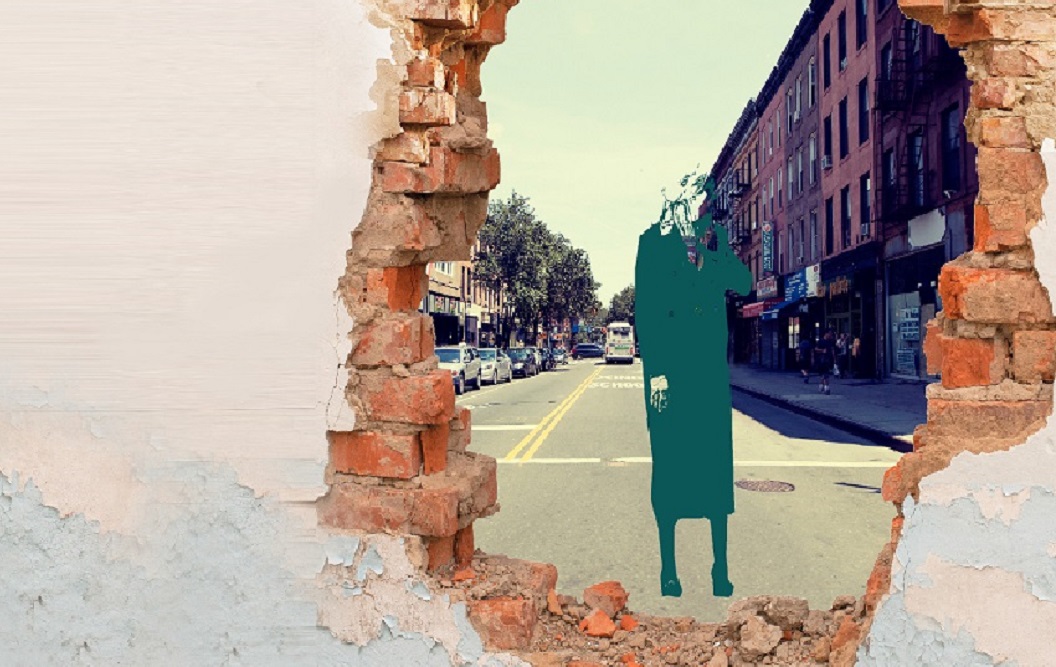
In Mishpacha’s recent serial, All I Ask, by Ruti Kepler, I was immediately drawn to the main character Yanky. You see, I’m a female Yanky. I, too, was born and raised within a particular framework of a closed chassidish community. And that’s where I learned what I can be, but also what I cannot be.
It’s a warm and vibrant community and there’s a lot to admire and appreciate. But there’s no room within it for my own unique style of growth, my own flavor of the spiritual, my own version of being a bas Yisrael and eved Hashem.
I am not disillusioned. My faith is strong and my connection to Hashem is real and deep, but I am sad and frustrated. Sad that I cannot express my individuality within this community and frustrated because my self-expression is being stifled.
As a thinking adult, if I could step back and actually choose, I know which lifestyle, which community, Rav, and shul would add richness to my life and complement my goals in ruchniyos. But the expectation is that we stay within the community into which we were born. We don’t choose differently, so no waves are made and no heads turn to see somebody who marches to the beat of her own drummer.
I envy Yanky.
Beaten by the Beat
Miriam Kosman is a lecturer for Nefesh Yehudi, an affiliate of Olami, and teaches Torah thought to hundreds of university students throughout Israel every week. She’s the author of Circle, Arrow, Spiral, Exploring Gender in Judaism and a Family First columnist.
Firstly, I’d like to validate your pain. The need for spiritual nourishment is as real and ravenous as the need for physical sustenance. When your community doesn't understand those needs, or worse, makes you feel inadequate or defective for not being satisfied, the invalidation makes the hunger sting even more.
I also want to commend you for being so clear that the pain you’re feeling is about a possible mismatch between you and your community's brand of Yiddishkeit not between you and Judaism itself or between you and Hashem, chas v'shalom.
Tragically, the inability to make that distinction sometimes results in the choice to throw out Hashem and His Torah with the bathwater, instead of moving over a few (figurative or literal) miles to join another frum community that more closely aligns with one's personality or inclination. Therefore, nuance here is critical.
Still, I think it's important to stress that Yanky's apparent success notwithstanding, switching communities is a big (and often traumatic) step with major ramifications. It’s easy to underestimate how much we gain from being part of a community—even an imperfect one. In general, a community gives us a framework in which to settle ourselves and our families, and helps us to form our identity and spiritual aspirations.
More specifically, the particular benefits of insular communities— the high standards of kedushah, the protection from the ugliness of the outside world, and even the judgment mentality (which often irks us, but keeps us on our toes)—are often cavalierly dismissed as insignificant by those who leave. And then they discover that exposure to the big world has its own challenges.
A friend who switched from a very insular community where interactions between men and women were almost non-existent, to a more open community, told me that she hadn’t realized that not only would she have more freedom in her new community, but her husband would as well; that change in his approach proved to be one of her big challenges in her new life.
Certainly in the area of chinuch, the benefit of avoiding endless battles against technology singlehandedly cannot be overestimated. Many would argue that it’s easier to raise children in an insular community, while exposing them privately to more breadth than the community offers than to raise them in an open community and run a losing sprint to close the gate after the horse has already escaped.
Of course, that involves walking a tightrope to avoid undermining your community’s standards, but many parents do that successfully; in fact, children of such parents often pick up a certain breadth by osmosis.
Another point—which might be hard to believe when you’re feeling choked and repressed—is that there really is no such thing as an ideal community. Even the community you eye admiringly surely has its cracks. Idealism and depth cannot be mass produced—the more people the ideology attracts, the more the ideas become diluted, or, even worse, distorted.
In fact, a community’s weak points are often the mirror image of their strong points—what you dislike about your community is the flip side of what you gain. More insular communities run the risk of breeding narrowness and superficiality; open communities battle cooling ideological fires and the cynicism that exposure to the outside world inevitably generates.
Yet with all the importance of community, don’t overestimate its value either. Sometimes our criticism of our community distracts us from our real task. The fact is that we bring ourselves with us wherever we go. People who’ve switched cultures sometimes discover that the exact challenges they’d fled from reappear in another incarnation in their next community.
While Yanky’s story ended on a positive note, in real life, it’s entirely likely that his non-conformist, questioning nature was only temporarily quieted and once the novelty wears off, he might be on the prowl again. (Poor Raizy!).
Which brings up another point: feelings of disconnect from one’s community might have less to do with one’s community and more to do with the sad(dish) truth that spiritually aware, sensitive people often feel lonely on some level, because most people aren’t that interested in their inner world. That’s true across the board, irrespective of community.
Real, authentic avodas Hashem is excruciatingly private. At the end of the day you stand before Hashem alone.
Of course, standing alone before Hashem also means that you’ll have to give an accounting of what you did with the intellectual and spiritual strivings He gave you. It would be tragic if you buried those gifts to accommodate your community’s social mores. I cannot overstate how crucial it is that you find the kind of Torah that speaks to your neshamah and then pursue it like a bulldog with a bone. But I do want to suggest that perhaps you can do that without getting bogged down by the trappings.
People tend to think that to do hisbodedus you need to wear a white yarmulke, and if you maaser your vegetables, you need to have a certain kind of peyos, but while external identification with an ideological community has its benefits, on another level that kind of affiliation is trivial.
Torah Judaism is holographic each aspect of Judaism contains within it all the other aspects. Living in one community does not bar you from drinking from the fountain of another community—certainly not in today’s world of accessibility, which (let’s be crystal clear about this point) Hashem has orchestrated for us.
It’s fascinating to note (and perhaps ungrateful not to note) the evocative the concurrence of women’s greater interest in spiritual connection through Torah knowledge (perhaps attributable to the global change in women’s status) and the explosion of access via technology to previously hermetically sealed Torah resources.
Lastly, nothing in life is static—not even your community. If you have a sincere desire to grow and learn, this might be a golden opportunity. And if you feel your needs are not being met, it’s entirely possible that there are others, less articulate or less self-aware than you, who feel similarly malnourished.
When your desire for change comes not from a place of rebellion, but from a deep identification with the system — precisely because you see the beauty, you’re pained by contradictions—it may be you who merits to bring a stronger spiritual vibrancy to your community. As Jews we have a rich and varied history, both Biblical and recent, of women who affected real and lasting change to the benefit of all of Klal Yisrael. While the circumstances of these women varied greatly, a common denominator was affinity and rapport with the system they were trying to change. Don’t underestimate the power of pure motivations.
To sum up, if by staying in your community you become cynical and resentful, subtly undermining your community’s message by your attitude, then there probably isn’t much good that your community can do for you or you for them.
But there’s another option, one that will involve honesty and scalpel precision. Stay. But be very clear to yourself about the cost and benefits of staying. Don’t discount the price—it’ll definitely cost you—but don’t downplay the benefits either. Perhaps you can expand your own personal garden without breaking the community’s fence, and then the light you radiate by filling your own neshamah will illuminate the world as well.
Shlomtzy Weisz has 35 years of education experience. She has the Inevitable Emunah program with 120 interactive character workshops based upon her unique B&B principle on the 13 Ani Ma’amin. Originally from the U.K., she now lives in New York.
Let me begin by stating unequivocally that this challenge you’re facing is on par with any other major life nisayon. The Avodas Yisrael, when discussing the nisayon of Akeidas Yitzchak, says that a part of the challenge was Avraham’s extreme loneliness as he walked towards Har Hamoriah.
This sense of isolation wasn’t new to Avraham; he was called Avraham Haivri because the whole world was on one eiver, one side while he was on another. The Baal Shem Tov tells us that every soul must go through all of the nisyonos Avraham faced in some form. Loneliness is a life challenge for all.
I’d like to commend you for recognizing and being attuned to this emotion. We were created to be contributing individuals and when we cannot express ourselves naturally, it drains us of the spark in life.
The Akeidas Yitzchak discusses the pasuk in Bereishis (2:17): “It’s not good for man to be alone.” He states a chiddush by explaining that there are individuals who’ll never become “a man” unless they are alone. These people will never reach their full potential except through solitary struggle. I call these people the “Levado Souls.”
There are so many people experiencing existential loneliness — talented, productive, and accomplished people — but with the undercurrent of loneliness you’ve described. We only have to look at Yosef Hatzadik for an example of this. Yosef, too, was profoundly misunderstood, even accused of wrongdoing by his birth family, when in reality, his purpose was to fulfill his individual destiny.
You should also be aware that despite your frustration on a cognitive level, your soul has accepted this challenge. Although it may seem impossible to have ever chosen such deep emotional pain, Chazal tell us we were active participants in our soul’s journey before we descended into this world. Therefore, we may find ourselves in situations that our intellect rebels against, but which our spiritual selves recognize as essential to our purpose in this world.
The Navi Malachi (3:24) says that in the time of the geulah, Mashiach will return the hearts of the fathers to their sons. If the Navi predicts this as one of the features of the geulah, we can deduce that one of the features of galus is the excruciating pain of fathers and sons who will not be on the same derech. The chasm this causes throughout families is heartrending, as anyone who’s experienced this can attest. Whether or not you’ve voiced your thoughts, your feelings alone mean that you’re disconnected from those around you.
The Midrash Rabbah gives an interesting perspective to the pasuk in Bereishis (32:25): “And Yaakov was left alone,” and he then fought with the angel of Eisav. The Navi Yeshaya (2:17) uses the same terminology of “alone” when discussing the time of Mashiach: “Hashem alone will be exalted on that day.” Says the Midrash, this is Hashem’s message to all those lonely people: “I’m alone, you’re alone; let’s join together.”
While this doesn’t mitigate your pain, perhaps you can take comfort from the fact that in a sense, you’re enduring the same agony the Shechinah suffers throughout this galus.
You may notice that I’ve not given you any pat practical answers regarding exactly how you should resolve your issue. You don’t need simple answers. You’ve tried them. What you need is the sheer validation that this challenge is divinely delivered. As long as you believe that this has been superimposed upon by you by virtue of where you were born or who you married, then you’re stuck feeling like a victim. Once you accept that you were put here precisely to face this dilemma, you’ll free your mind and heart to be able to find the resources you need.
I feel for you, and I wish you Hashem’s guidance in forging your unique path in your avodah. May we soon be zocheh to the geulah when Hashem will heal us on every level and you too will be healed, your voice heard.
Baila Vorhand is a Family First columnist and the author of several books based on Rav Moshe Wolfson’s shiurim as well as one entitled, Free to be Me. She lives in Brooklyn.
I’m not answering your letter as a mentor, but as a fellow traveler who feels your pain deeply, although I’m further down the road than you are now. I’m a deep intellectual type who has tremendous spiritual intensity not your typical chassidishe female.
As such, in addition to hearing you pain, I also recognize the fear between the lines of your question. This fear isn’t unfounded—recklessly “switching paths” can be destructive.
However, nowadays with all the Torah available on the phone, discs, or downloads, a person can hear lectures from any derech of Torah chassidus, kiruv, litvish—without veering from her path at all.
You refer to a specific lifestyle, community, and Rav, which would complement your spiritual goals. What’s stopping you from listening to shiurim by this rav, learning seforim that reflect his teachings, and incorporating the ideals you identify with in your daily life?
It’s not necessary to take an outward stand to reach spiritual shleimus. Most of our spiritual world is deep within and is only reflected outwardly by our joyful demeanor. There’s no need to make a public declaration that you’re marching to your own drummer; it’s personal and private. Truthfully, we each should be marching to our own drummer to formulate our inner world, independent of peer pressure or culture demands. We’re each unique and our inward spiritual journey is equally so.
I did find it interesting that you chose not to write about your husband’s take on your struggle. There are many men whose wives dive deeper into Torah than they do. Those husbands who are proud and nurturing of their wives are those who feel respected and nurtured themselves. Your relationship and shalom bayis are critical to giving you the support you need find your niche.
And you need support. You need to reach out and find others who are similar to you, to connect and share your thoughts.
I recently wrote an article about Tamar Taback, a rebbetzin from South Africa who’s forming an online support group for women to learn and grow in their yiddishkeit.
Whether or not this group or any official support group is exactly what you need, you do have to develop mentors and friendships with those who understand you. You’d be surprised how many people there are with whom you can share thoughts and insights that mesh with your own. You may find enough to form your own group.
It takes enormous sechel to navigate real life, function within society in dress and behavior, preserve your marriage and your children’s wellbeing, while still feeding your own soul. It’s essential to be in tune with yourself, to recognize how you personally relate to Hashem, Torah, and mitzvos. Once you’ve figured out your personal approach, incorporate it in your daily life without any public advertisements.
I have a close relative who belongs to a chassidus whose derech doesn’t work for him. He’s found mashpiim from other derachim who feed his neshamah and he learns from them. Yet he sends his children to the institutions of his traditional chassidus, and doesn’t make waves, thus maintaining shalom and growth. And he’s not the only one.
Be fearless, have emunah. If your neshamah’s demanding something of you, you must find a rav/mentor who speaks your language and utilize their guidance to shape yourself. It’s scary to shake status quo, but it’s much scarier to die an emotional death. Nobody wants to look back at her life with regrets that she didn’t do what she needed because of fear. The more you accept yourself, the more others will accept you for who you are.
I’m here if you want to reach out—and there are many more like me too.
(Originally featured in Family First, Issue 712)
Oops! We could not locate your form.
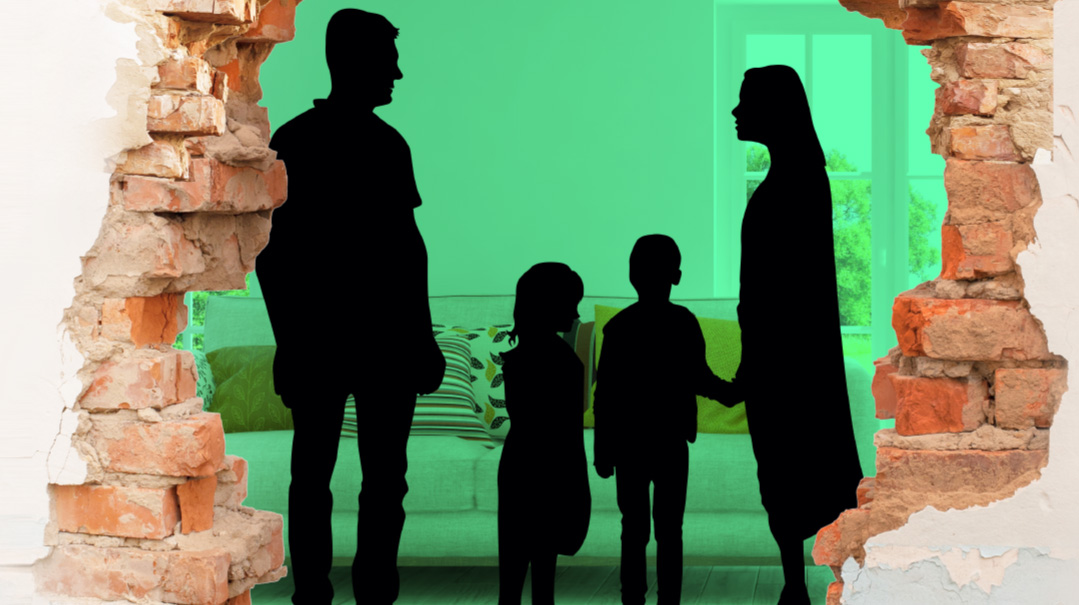
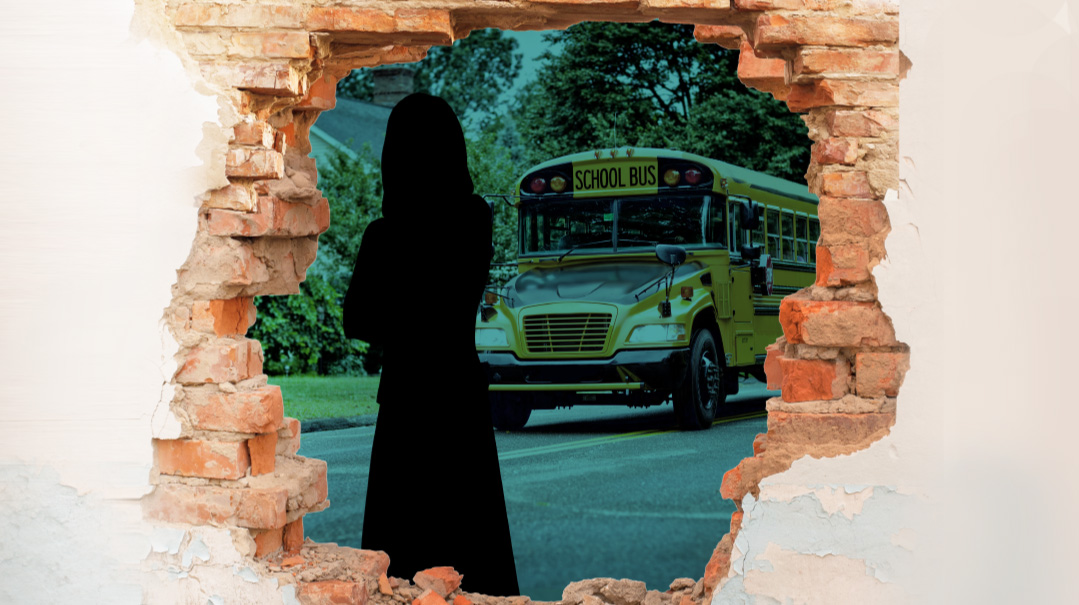
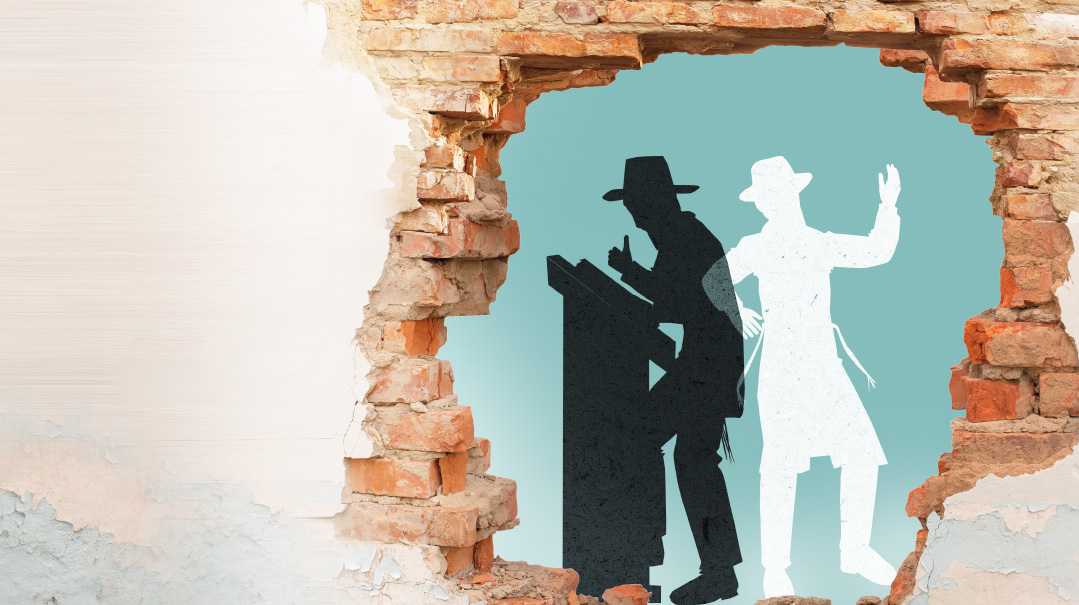
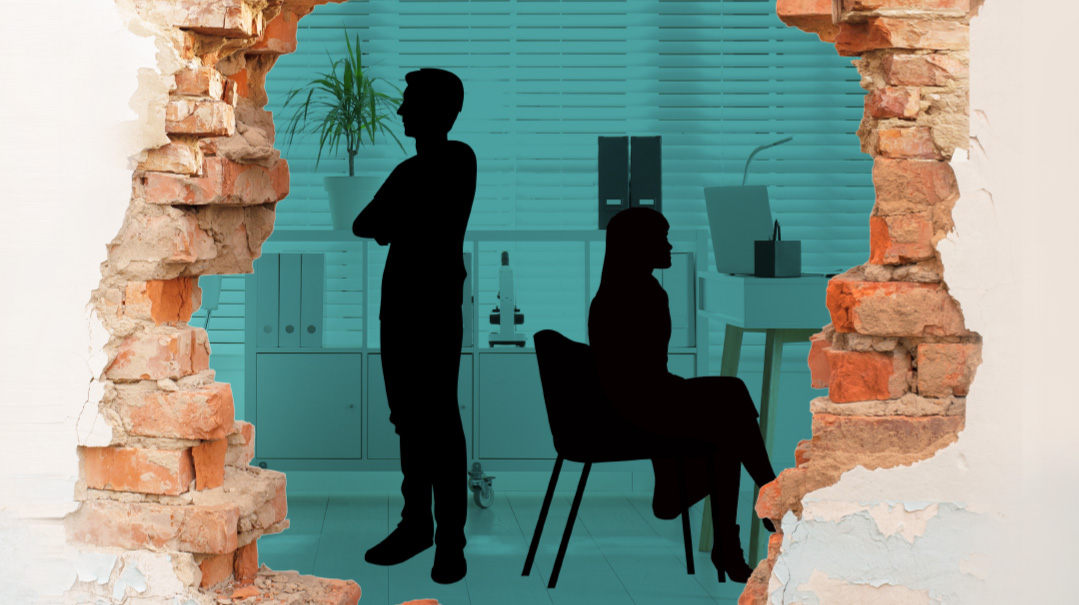
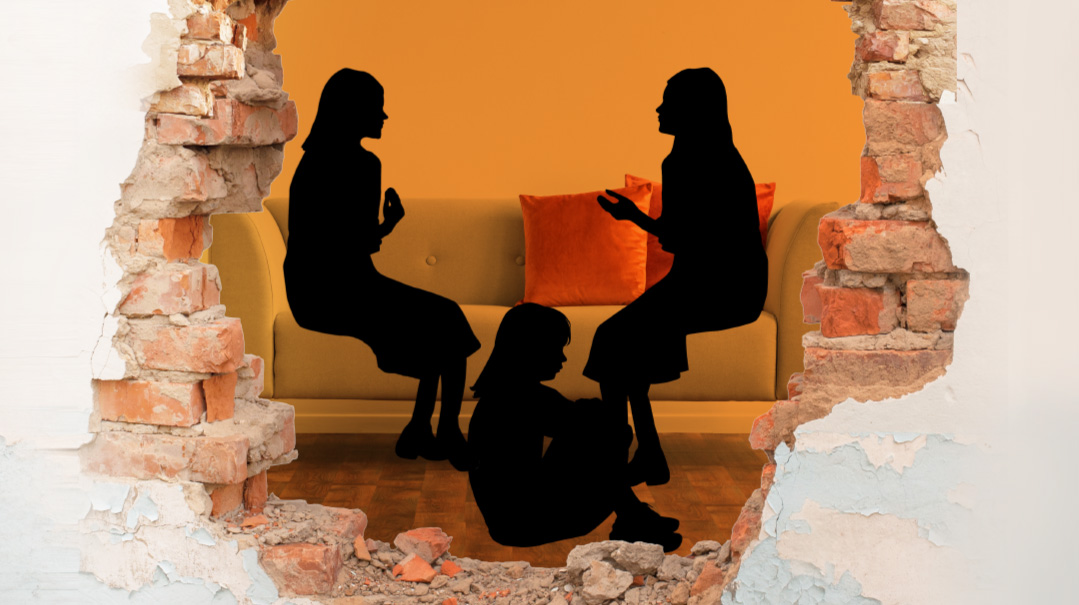
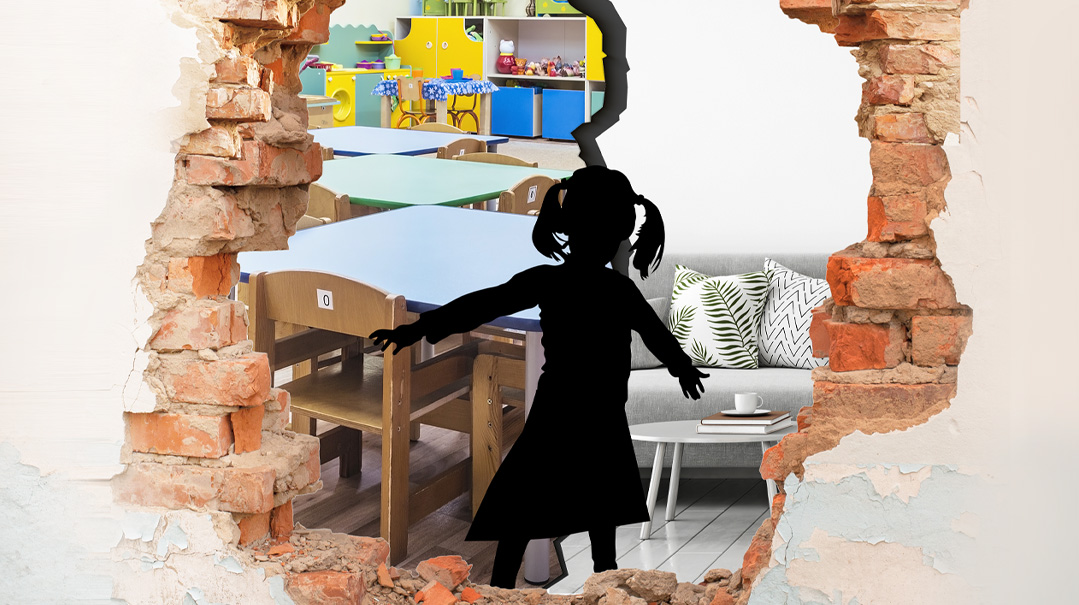

Comments (7)